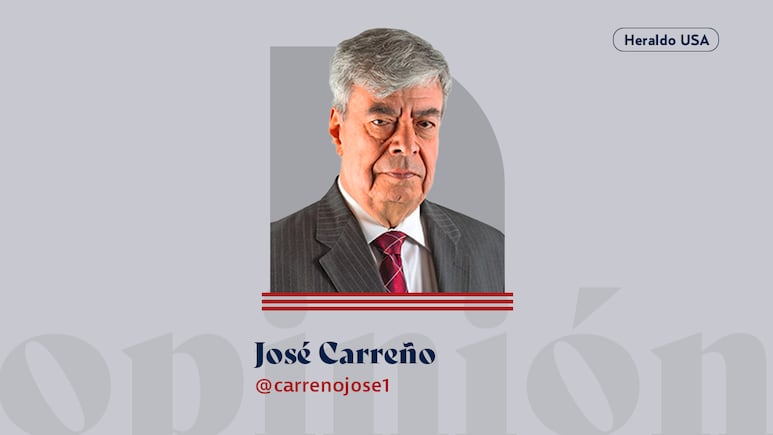FROM THE OUTSIDE | U.S. Unilateralism
This is the world the US helped build after World War II, and which Trump, whether out of political conviction, ignorance, or arrogance, is now trying to marginalize

This column could well be titled Requiem for the World—the world once reflected in trade and military alliances that the government of Donald Trump has begun to fracture, starting with the United States-Mexico-Canada Agreement (USMCA).
Publicidad
It’s not that the agreement has been scrapped or that NATO has collapsed, but the chances of preserving the North American trade pact or the transatlantic alliance in their original forms do not seem promising.
This is the world that the United States helped build after World War II and which Trump—whether out of political conviction, ignorance, or arrogance—is now trying to sideline, relying on the size and potential of his country, by far the world’s largest economy.
And few countries, if any, are in a position to confront the U.S., at least for now.
Publicidad
Mexico and Canada remain tied—whether they want to or not—by an umbilical cord to the United States. Neither can change neighborhoods, and both maintain ties that, in Mexico’s case, go beyond economic integration.
Publicidad
While Mexico, for instance, struggles to preserve its trade relationship with the U.S., Washington seems less concerned about maintaining its commercial and military ties with other regions—ties that now appear irreparably damaged, particularly in Europe’s case.
In the process, the Trump administration has cast doubt on the U.S.’s reliability as a trade partner or military ally.
It’s possible—even likely—that this won’t matter in the short term. After all, though the U.S. is no longer the “indispensable nation” once proclaimed by former Secretary of State Madeleine Albright in the 1990s, it is still the global hegemon—difficult, if not impossible, to ignore.
The formal announcement of a 25 percent tariff on imported vehicles, including those from Canada and Mexico, was like the opening bell at the funeral of the USMCA and other longstanding U.S. international positions. The USMCA includes dispute resolution mechanisms, but Trump and his team have acted unilaterally.
And if they act this way with their main trade partners…
“The power imbalance is such that (Mexico and Canada) lack a credible strategy to counter it. Everyone understands that, eventually, they’ll have to accept Trump’s terms. The only question is whether capitulation comes before or after a costly battle,” recently noted Ian Bremmer, founder and president of the geopolitical risk analysis firm Eurasia Group.
“With an 85% job approval rating, Mexican President Claudia Sheinbaum has enough political room at home to give in to Trump’s demands and keep Mexico in his good graces—which she’s already doing,” he added.
For Canadians, the situation is complicated by an election process set to conclude on April 28: “The Canadian government has a political incentive to put up stronger resistance” in response to Trump’s threats to the country’s economy and sovereignty.
Canada may not be the 51st state of the U.S., but it has few short-term alternatives like Mexico.
In the long run, however, the United States will need to make a serious effort to rebuild the trust of those who have been its allies and partners until now.
Publicidad
Mhoni Vidente revela sí Gerardo Ortiz irá a la cárcel

Publicidad
Más Leídas | Heraldo USA
Cubanos, venezolanos y ciudadanos de 39 países más NO podrán entrar a EEUU con ningún tipo de visa
Por Heraldo USA
Para evitar aranceles esta famosa compañía de chocolates trasladará su producción a EEUU
Por Heraldo USA
EN VIVO: Sigue minuto a minuto la conferencia matutina de Claudia Sheinbaum HOY 20 de marzo
Por Heraldo USA
Marcelo Ebrard anuncia inversiones en Durango por 3,700 mdd: fertilizantes e inteligencia artificial
Por Heraldo USA
Publicidad
Más noticias de Columna
Más noticias de Estados unidos







